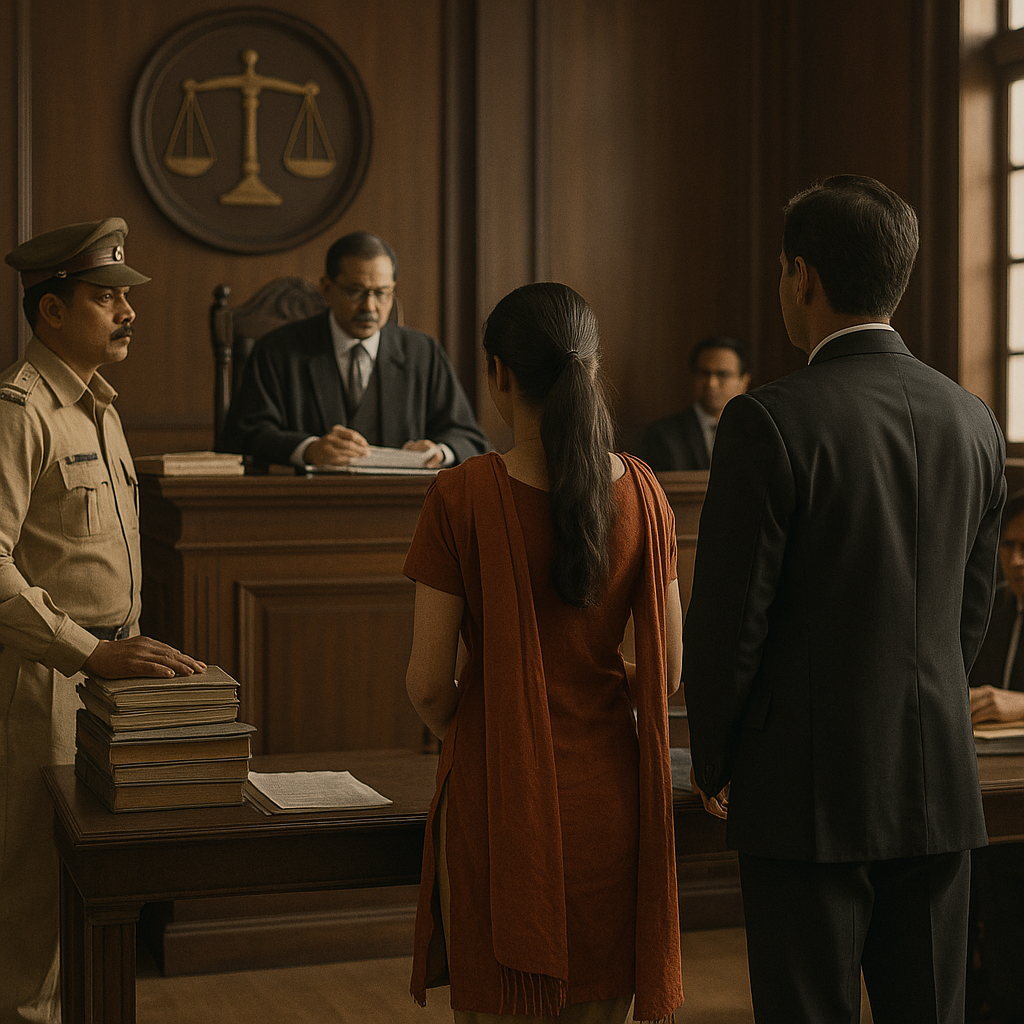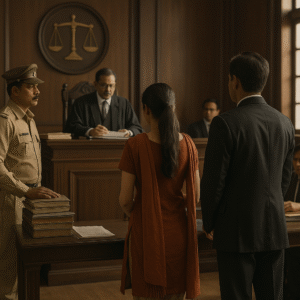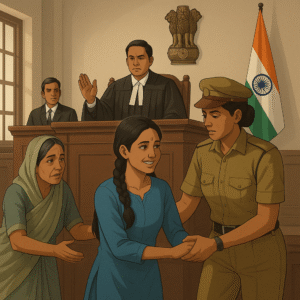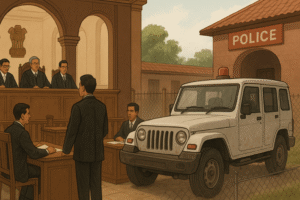Simplified Explanation of the Judgment
In an important ruling that clarifies the scope of judicial review in government tender matters, the Patna High Court dismissed a writ petition challenging the cancellation of a tender by the Food Corporation of India (FCI). The Court held that a bidder has no legal right to claim the award of a contract merely because his offer is the lowest if the tendering authority has valid administrative reasons for scrapping the process.
The case was decided on 21 May 2021 by Hon’ble Mr. Justice Chakradhari Sharan Singh.
Background of the Case
The case arose from a tender issued by the Food Corporation of India (FCI) for the replacement of damaged bituminous roads with concrete (C.C.) roads at various depots, including Muzaffarpur, Chanpatia, and Darbhanga.
The petitioner, a partner in a construction firm, participated in the tender process conducted by FCI’s Regional Office, Bihar. His company — M/s Rama Shri Sai Construction Pvt. Ltd. — was declared the lowest bidder (L-1) in the evaluation process.
However, before the work order could be issued, the FCI scrapped the entire tender through a communication dated 24 January 2020, citing lack of sufficient engineering staff to supervise and monitor the construction work.
The petitioner filed Civil Writ Jurisdiction Case No. 7587 of 2020, challenging this decision and demanding that the work be awarded to him.
Petitioner’s Arguments
The petitioner contended that:
- Since his bid was the lowest and had already been recommended for approval, the FCI’s decision to cancel the tender was arbitrary and unjustified.
- The stated reason — shortage of engineering staff — was imaginary and not supported by evidence.
- Once his bid was accepted, the FCI was legally bound to issue a work order.
- The action of scrapping the tender after opening and evaluating bids amounted to violation of Article 14 (right to equality) and required judicial intervention.
The petitioner also requested the Court to direct FCI’s Chairman and Managing Director to conduct an inquiry into the cancellation and to award the work to him.
Respondent’s (FCI’s) Defense
The FCI, represented by Senior Advocate Mr. Prabhakar Tekriwal, refuted all claims and explained that:
- The tender had not been formally accepted, as no letter of acceptance (LOA) was ever issued.
- The validity of the bid expired on 30 November 2019, and any subsequent extension could not revive it.
- The Regional General Manager (Bihar) had already recommended scrapping the tender on 17 December 2019 due to acute shortage of qualified engineering officers to supervise the project.
- A later letter dated 11 January 2020, which mentioned extension of the bid, was issued inadvertently by a lower officer who was unaware that the scrapping process was already underway.
- Under Clause 17 of the tender notice, FCI was not bound to accept the lowest or any tender.
Court’s Observations
Justice Chakradhari Sharan Singh analyzed the records and found the following:
- No Right Without Formal Acceptance
The Court held that merely being the lowest bidder does not create a legal right to demand award of the contract. A bidder acquires enforceable rights only after the letter of acceptance or work order is issued. - Valid Administrative Reason for Cancellation
The FCI’s reason — shortage of engineering manpower — was held to be reasonable and bona fide. The Court observed that if an organization lacks adequate supervision capacity, it is well within its rights to cancel the tender. - Limited Scope of Judicial Review
The Court reiterated that while government decisions are open to judicial scrutiny to prevent arbitrariness or favoritism, courts cannot interfere with policy or administrative discretion in tender matters unless mala fide intent or bias is proven. - No Allegation of Mala Fide
The petitioner did not allege any personal bias, corruption, or favoritism against FCI officials. Hence, the decision to scrap the tender could not be termed arbitrary.
Final Decision
The High Court dismissed the writ petition, holding that:
- FCI acted within its authority in scrapping the tender due to shortage of staff.
- The petitioner had no vested right to the contract despite being the lowest bidder.
- The decision was neither arbitrary nor motivated by malice.
Accordingly, the writ petition was dismissed without costs.
Significance or Implication of the Judgment
This decision is important for both government bodies and contractors. It reaffirms key legal principles in public contracting:
- Lowest bid does not guarantee contract award. Authorities can reject or scrap tenders for legitimate reasons such as administrative constraints.
- Judicial review is limited to assessing fairness of the decision-making process, not the decision’s merits.
- Transparency and prudence are essential in public contracts; however, courts will not compel agencies to act against administrative feasibility.
- The ruling protects public authorities’ discretion in managing infrastructure projects, ensuring that decisions are practical and accountable rather than purely procedural.
This judgment will guide future disputes where tender cancellations are challenged, especially when based on organizational or resource limitations.
Legal Issue(s) Decided and the Court’s Decision
- Issue 1: Does the lowest bidder acquire a legal right to the contract?
➤ Decision: No. Acceptance must be formally communicated before a legal right arises. - Issue 2: Can a tender be scrapped due to administrative limitations like staff shortage?
➤ Decision: Yes. Such reasons are valid and reasonable. - Issue 3: Can courts interfere in tender cancellations under Article 226?
➤ Decision: Only to examine the fairness of the process, not to substitute the authority’s discretion.
Judgments Relied Upon or Cited by the Court
- General principles from Tata Cellular v. Union of India, (1994) 6 SCC 651
- Sterling Computers Ltd. v. M&N Publications, (1993) 1 SCC 445
Case Title
Angesh Kumar v. Food Corporation of India & Ors.
Case Number
Civil Writ Jurisdiction Case No. 7587 of 2020
Citation(s)
2021(2) PLJR 865
Coram and Names of Judges
Hon’ble Mr. Justice Chakradhari Sharan Singh
Names of Advocates and Who They Appeared For
Mr. Manish Kumar No. 2 & Mr. Gajendra Kumar Singh — for the petitioner
Mr. Prabhakar Tekriwal, Senior Advocate — for the respondents (FCI)
Link to Judgment
MTUjNzU4NyMyMDIwIzEjTg==-qPu6FpFn0tc=
If you found this explanation helpful and wish to stay informed about how legal developments may affect your rights in Bihar, you may consider following Samvida Law Associates for more updates.








